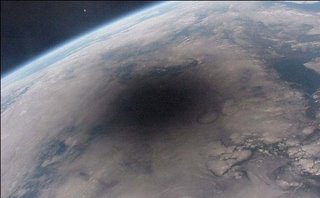Remember yourself, from the days when you were younger and rougher and wilder, more scrawl than straight line. Remember all of yourself, the flaws and faults as well as the many strengths. Carl Jung once said, "If people can be educated to see the lowly side of their own natures, it may be hoped that they will also learn to understand and to love their fellow men better. A little less hypocrisy and a little more tolerance toward oneself can only have good results in respect for our neighbors, for we are all too prone to transfer to our fellows the injustice and violence we inflict upon our own natures."
Most commencement speeches suggest you take up something or other: the challenge of the future, a vision of the twenty-first century. Instead I'd like you to give up. Give up the backpack. Give up the nonsensical and punishing quest for perfection that dogs too many of us through too much of our lives. It is a quest that causes us to doubt and denigrate ourselves, our true selves, our quirks and foibles and great leaps into the unknown, and that is bad enough.
But this is worse: that someday, sometime, you will be somewhere, maybe on a day like today--a berm overlooking a pond in Vermont, the lip of the Grand Canyon at sunset. Maybe something bad will have happened: you will have lost someone you loved, or failed at something you wanted to succeed at very much.
And sitting there, you will fall into the center of yourself. You will look for that core to sustain you. If you have been perfect all your life, and have managed to meet all the expectations of your family, your friends, your community, your society, chances are excellent that there will be a black hole where your core ought to be.
Don't take that chance. Begin to say no to the Greek chorus that thinks it knows the parameters of a happy life when all it knows is the homogenization of human experience. Listen to that small voice from inside you, that tells you to go another way. George Eliot wrote, "It is never too late to be what you might have been." It is never too early, either. And it will make all the difference in the world. Take it from someone who has left the backpack full of bricks far behind. Every day feels light as a feather.
Anna Quindlen
Commencement address delivered to Mt. Holyoke College, 1999




